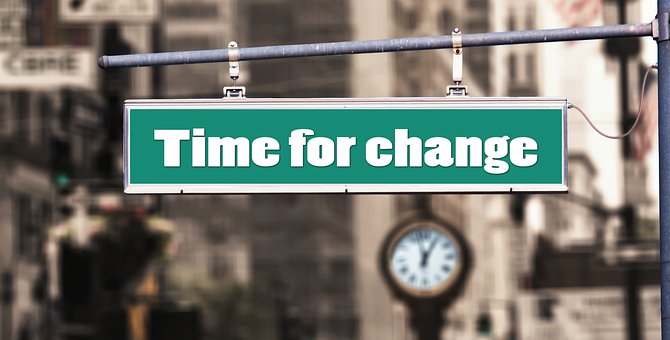Are you looking for “What Motivates People To Struggle For Change Essay”? Then you have come across at right place.
Introduction
Change is a fundamental part of human existence, and throughout history, individuals and communities have strived to bring about positive transformations in various aspects of life. The drive to struggle for change stems from many factors that ignite passion, purpose and a desire for a better future. In this essay, we will explore the key motivators that inspire people to engage in struggles for change, examining the power of personal experiences, the pursuit of justice and equality, the yearning for a brighter tomorrow, and the role of youth in driving societal transformations.
What Motivates People To Struggle For Change Essay
I. Personal Experiences: A Catalyst for Change
a) Empathy and Compassion:
Humans are inherently empathetic creatures. When individuals experience or witness injustice, discrimination, or suffering can ignite a deep sense of compassion within them. Personal experiences of adversity or witnessing the struggles of loved ones can spark a desire to fight for change and prevent others from enduring similar hardships. For instance, someone who has faced discrimination based on race or gender may be driven to advocate for equality and work towards dismantling systemic barriers.
b) Overcoming Challenges:
Personal challenges and triumphs can shape individuals’ motivations to struggle for change. People often develop a strong determination to help others facing similar challenges when they overcome obstacles. Their experiences serve as a source of inspiration and propel them to strive for societal improvements. Whether it is triumphing over poverty, illness, or adversity, the journey towards change becomes intertwined with their personal growth.
II. Pursuit of Justice and Equality: Nurturing a Fairer World
a) Inequities and Injustices:
Inequities and injustices that pervade society act as catalysts for change. Witnessing or experiencing discrimination, social inequality, or the denial of basic human rights can ignite a deep sense of injustice within individuals. They become motivated to challenge the status quo, advocate for the marginalized, and strive for a more equitable society. Historical legends like Martin Luther King Jr., Mahatma Gandhi, and Nelson Mandela were driven by the pursuit of justice, inspiring movements that brought about significant societal changes.
b) Empowerment and Liberation:
The struggle for change often stems from a desire to empower and liberate oneself and others. People who feel oppressed or confined by societal norms and constraints yearn for freedom and self-determination. This desire for liberation fuels movements for women’s rights, LGBTQ+ rights, and other social justice causes. By challenging oppressive systems, individuals seek to create a world where everyone can live authentically without fear of discrimination or marginalization.
III. Yearning for a Brighter Tomorrow: Hope and Vision
a) Visionary Leadership:
Inspiring leaders play a crucial role in motivating people to struggle for change. Visionaries possess the ability to articulate a compelling vision of a better future that resonates with the aspirations of the masses. Their vision provides hope, instills a sense of purpose, and mobilizes individuals to work collectively towards that shared goal. Leaders ignite the passion and drive necessary for societal transformations by painting a vivid picture of a brighter tomorrow.
b) Legacy and Impact:
The desire to leave a positive legacy and impact the world propels individuals to engage in struggles for change. They believe that their actions, no matter how small, can contribute to a larger movement and bring about tangible improvements. By actively participating in initiatives aimed at social change, they hope to create a world where future generations can thrive and enjoy a better quality of life.
IV. The Role of Youth in Driving Societal Transformations
a) Youth as Agents of Change:
Young people’s enthusiasm, idealism, and fearlessness make them powerful agents of change. They possess a unique perspective and a deep desire to challenge the status quo. Youth-led movements such as the climate justice movement and the fight against gun violence have garnered significant attention and have influenced policy decisions worldwide. The youth bring fresh ideas, technological savvy, and a strong sense of urgency to address pressing issues, motivating them to take to the streets, engage in activism, and use their voices to demand change.
b) Education and Empowerment:
Education plays a crucial role in empowering young people to become change-makers. By equipping them with knowledge about societal issues, critical thinking skills, and an understanding of their rights, education empowers young individuals to challenge injustice and actively participate in the struggle for change. Schools, parents, and communities can foster an environment that encourages youth engagement, providing platforms for them to express their ideas, engage in debates, and participate in community service.
c) Collaboration and Solidarity:
Youth-driven movements thrive on collaboration and solidarity. Young people recognize the power of collective action and the importance of working together towards shared goals. By forming alliances, networking, and leveraging social media platforms, they can connect with like-minded individuals globally, amplifying their message and exerting pressure on decision-makers. Through their collective efforts, young people can drive change by influencing public opinion and shaping policies.
Conclusion
What Motivates People To Struggle For Change Essay concludes that the motivations behind struggles for change are deeply rooted in personal experiences, the pursuit of justice and equality, the yearning for a brighter future, and the unwavering dedication of young people to make a difference. Personal experiences awaken empathy and compassion, propelling individuals to advocate for change. Pursuing justice and equality drives the fight against societal injustices and oppressive systems—the yearning for a brighter future fuels visionary leadership and the desire to leave a positive legacy. Additionally, the active involvement of young people as agents of change and their collaboration and solidarity contribute to driving societal transformations.
Also Checkout:
